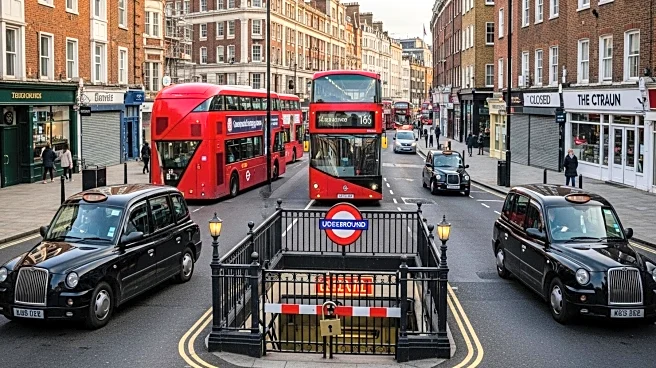What's Happening?
A Tube strike in London, led by the Rail, Maritime and Transport union (RMT), is causing significant disruption across the city. The strike, which began on Sunday, is expected to last until Thursday, affecting London Underground services. The Centre for Economics and Business Research estimates the strike could result in a direct economic cost of approximately £230 million, reflecting the loss of around 700,000 working days. The strike is impacting various sectors, including professional services, retail, and hospitality, due to reduced productivity and lower consumer spending. Small businesses, in particular, are feeling the strain as they rely heavily on footfall and staff mobility.
Why It's Important?
The Tube strike highlights the vulnerability of urban economies to transportation disruptions. Small businesses in London, which depend on consistent customer flow and employee presence, are particularly at risk. The economic impact extends beyond immediate financial losses, potentially affecting long-term business viability and employment. The strike also underscores ongoing labor disputes over pay and working conditions, with the RMT advocating for a 32-hour workweek and better fatigue management. The situation calls for urgent dialogue between the union and Transport for London to mitigate further economic damage and address worker grievances.
What's Next?
As the strike continues, businesses and commuters are likely to seek alternative arrangements, such as remote work or different transportation methods. The ongoing negotiations between the RMT and Transport for London will be crucial in determining the strike's duration and resolution. Stakeholders, including business associations and local government, may increase pressure on both parties to reach a swift agreement to minimize economic fallout. The outcome of these negotiations could set precedents for future labor relations and transportation policies in London.









